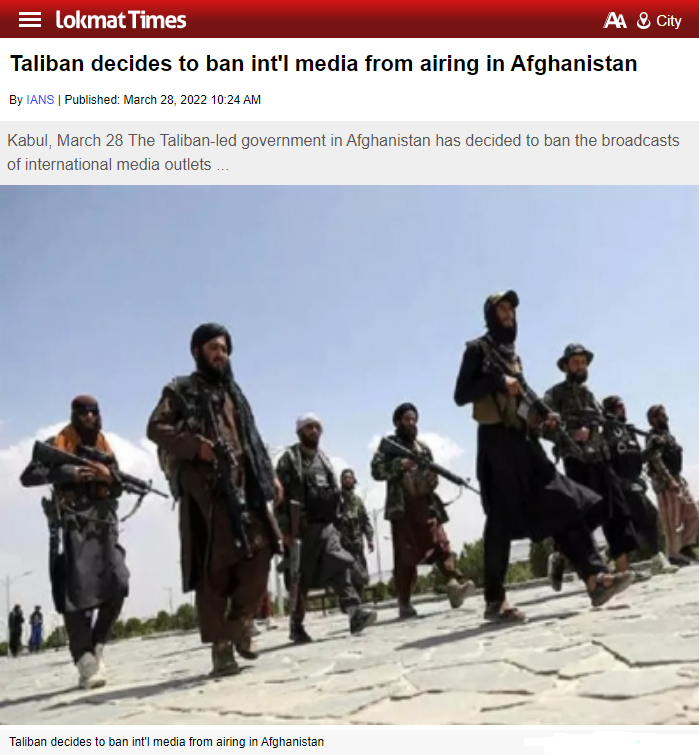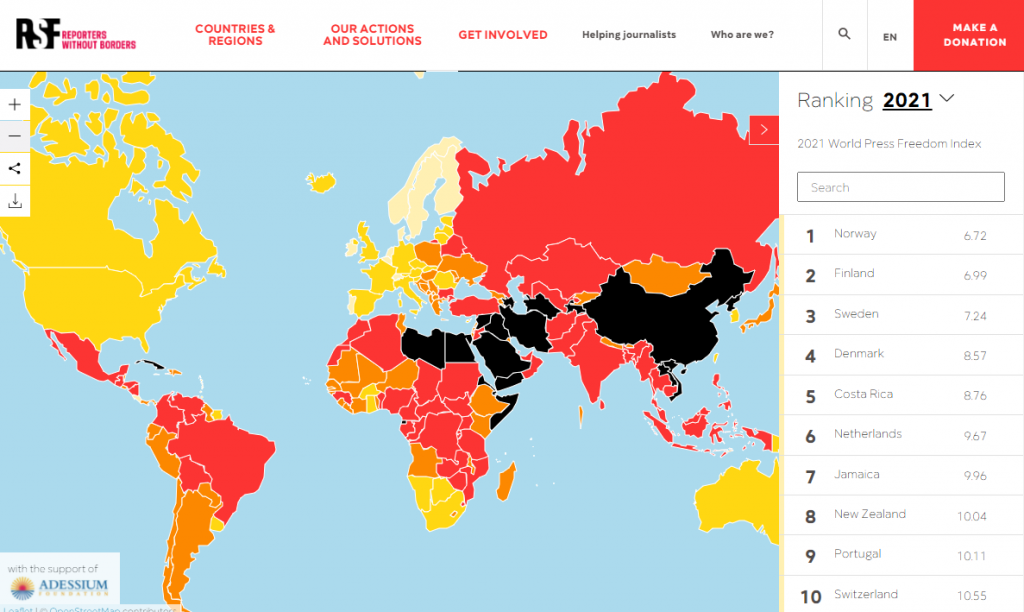
Source
Since 28 March, the Taliban have banned the possibility of repeating foreign broadcasters’ programmes on Afghan territory. The first to stop broadcasting was the BBC, which asked for the decision to be revoked because programmes in Persian, Pashto and Uzbek are still only receivable by those with a satellite dish: 20% of the estimated six million listeners. Before the American withdrawal, the BBC also had dozens of FM installations in various parts of the country, including two in Kabul, on 89.0 and 101.6 MHz. The blockade makes no distinction and also affects the Voice of America, Deutsche Welle and the China Global Television Network.
Free speech in free fall

Source
According to a survey conducted by Reporters Without Borders (RSF) in collaboration with the Afghan Independent Journalists Association (AIJA), in four months (15 August to 20 December 2021), 231 media outlets ceased operations, putting more than 6,400 journalists out of work. And women are the hardest hit: four out of five have been ‘sent home’. And who knows how many positions Afghanistan will lose in the world press freedom rankings drawn up by the World Press Freedom Index, which measures press freedom in 180 countries around the world: in the 2021 report, Afghanistan was already in 122nd place.
